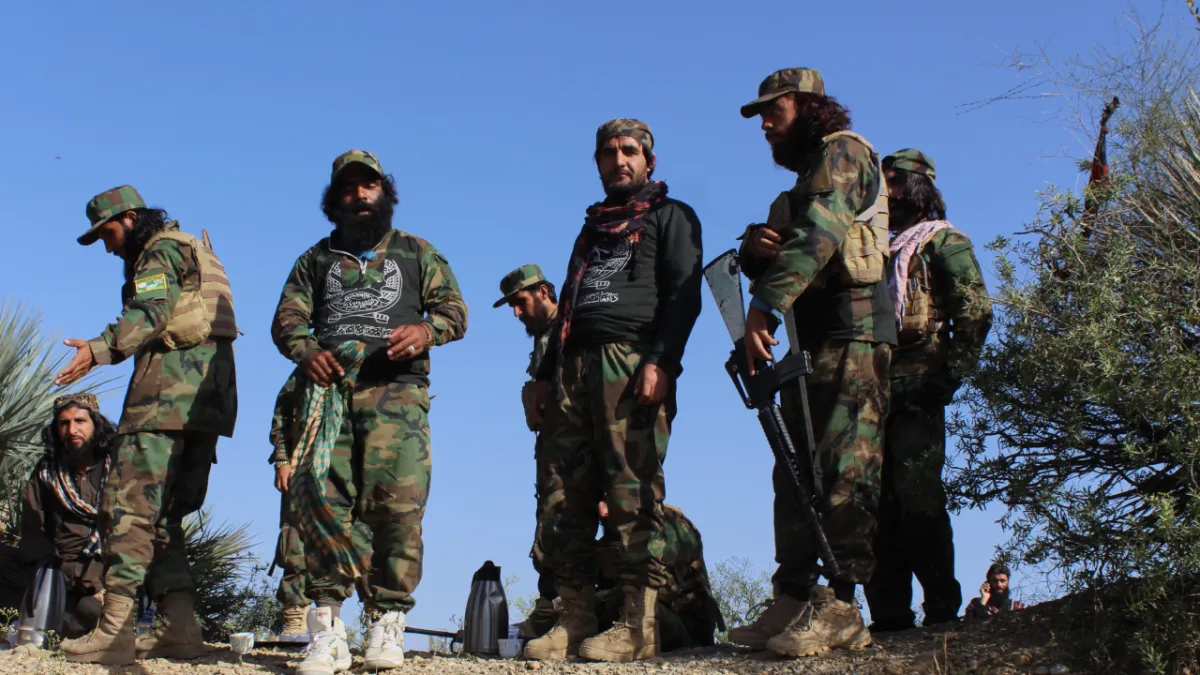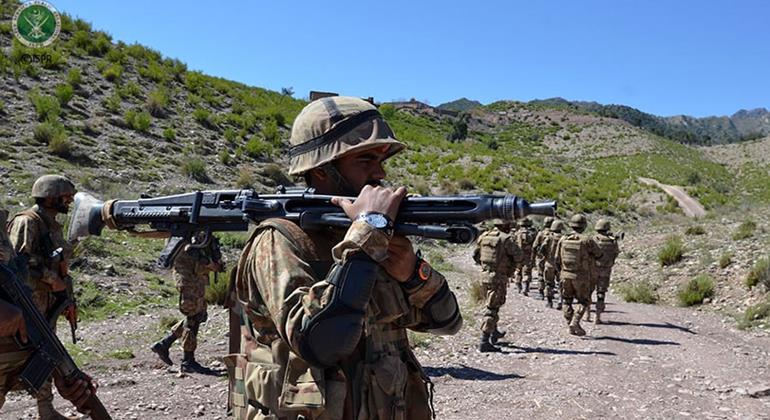
The expected fallout in Istanbul between Pakistan and the Afghan Taliban was inevitable, with the fragile ceasefire holding. South Asian political and military alignments are shifting, with some countries forming alliances and others turning against one another.
By Ahsan Ali
The negotiations deadlock remains the same over the militant extremist group Tehreek-e-Taliban Pakistan (TTP), where the Afghan Taliban refused to go against TTP. Ruling TTP to be an internal security threat of Pakistan, despite evidence of TTP presence in Eastern provinces, has complicated the relations that were once allies.
The fallout from negotiations paints a grim picture in South Asia, with the restructuring of fault lines between allies and foes. The signing of a joint statement and a thaw of relations between India and the Afghan Taliban have sent cynical signals in Islamabad.
South Asia is witnessing a phase where foreign policy is shifting and hostilities are intensifying between nations. After the May war between Pakistan and India, Pakistan’s looming tensions with the Afghan Taliban, and the thaw between India and the Afghan Taliban have changed the chessboard.
The fall of negotiations comes with the crux of the militant attack at Wana Cadet College by the TTP. Pakistan is further grilled by a bomb blast outside the judicial complex, with the TTP taking the responsibility. The attack has raised anger against the Afghan Taliban over their inaction against their ally, TTP.
Both attacks have raised the stakes on the security of Pakistan, as this is the deadliest attack in almost a decade in the heart of Islamabad. The bolstered posture of the TTP is fearing the escalation of tensions on the border between Pakistan and Afghanistan.

As the state’s capacity to fight is coming under scrutiny, with the mounting attacks and hawkish posture of TTP against the state. Where previously, the security infrastructure was the prime target, now the attack on the judicial complex highlights their attack on the legal system of Pakistan.
Strategically, beyond brotherhood, the Afghan Taliban perceives the TTP as a lever to assert pressure on Islamabad, to prevent it from interfering in Afghanistan. This policy allows the Afghan Taliban to legitimise the TTP with the negotiations conducted back in 2021.
Targeting the state judiciary, TTP conveys the rejection of Pakistan’s legal system and its preference for its extremist form of Sharia law, as Pakistan has a hybrid legal system that blends secular and Islamic laws, which are observed negatively by the TTP.
Geopolitically, Pakistan is encircled by foes, and with the fallout in Istanbul and the judicial complex attack, any dialogue further complicates relations with the Afghan Taliban. The attack deteriorates the environment, as skirmishes and attacks in KPK and Balochistan are now coming to Islamabad.
The paradoxical situation in South Asia is increasingly militaristic, with the potential outbreak of strikes inside Afghanistan. Due to the Afghan Taliban forcing out the Soviet Union and the US, they boast of trouncing Pakistan. The TTP is one of the main instruments playing against Pakistan and mapping the new environment of South Asia.
The Afghan Taliban’s increasing alignment with India has created a strategic dilemma for Pakistan, whose focus is absorbed by the Western frontier. The Western frontier attacks have stretched Pakistan’s security infrastructure, weakening the internal security apparatus in Balochistan.
With the Baloch separatist allegiance to TTP and mounting TTP attacks, Pakistan is increasingly engulfed in a hostile environment. The “backyard policy” of Pakistan towards Afghanistan has strikingly backfired, empowering militant groups that now confront Pakistan aggressively.
The state authority is acutely exposed on the Western flank currently, and Pakistan must contain the threat of the TTP. Any negotiations between Pakistan and the Afghan Taliban are futile, as TTP would continue their terrorist activities across Pakistan. The Afghan Taliban’s ultimate aim is to back the formation of an extremist state in Islamabad similar to the one in Afghanistan.
This time, Pakistan’s military operations should have more internal and external support to curb the rising Islamist extremism within Pakistan. Pakistan must contain the religious extremism at madrassas, extremist political elements, and the sleeper cells within the society.
Where the Washington foreign policy is in support of Pakistan, it may support Pakistan in containing the TTP and fighting against the extremist elements. Alongside, Washington may threaten sanctions against India or tariffs over their support for the Afghan Taliban.
Pakistan is at the crossroads of change, where the potential outbreak of a limited war could escalate into total war in the border regions. Kabul and the border regions would be impacted if negotiations are not reached, and the Pakistan military may opt for the annihilation of the TTP.






